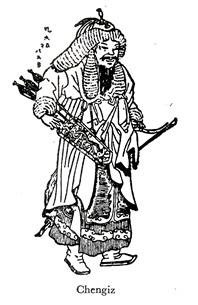The ancient Egyptian civilisation flourished in Africa on the river bank of Nile.
The bank of Nile was overflowed due to flood in that river which created fertility of the soil.
The fertility of soil helped in ample production of crops which sustained the life of the people of that land and contributed to the growth of socio-politico-economic and cultural life of the Egyptians.

Image Source: 7b5f78df09ee4b362b64-c79341e4b49d5a2d8359c9390eb62513.r71.cf2.rackcdn.com/A9AB59B3-0E31-4131-9878-61D8FF7FCB3D.jpg
ADVERTISEMENTS:
That is why Herodotus, the ‘Father of history’ had rightly said Egypt as “the gift of the Nile”. For a long time the world was unaware about this civilisation. Rosetta, an engineer who accompanied Napoleon in his Egyptian campaign discovered a stone from the river bank of Nile.
The French Palaeographer Champollion was able to decipher the Egyptian scripts engraved on this ‘Rosetta Stone’ and to read its Greek translation. After that, the world knew about this flourishing ancient Egyptian Civilisation.
Location of Egypt:
Egypt is located in the North-Eastern part of Africa. River Nile flows throw it and falls in the Mediterranean Sea. That is why habitation became possible on the river banks of Nile. The Arabian Sea is situated in the east of Egypt and in the west, lies the great Sahara desert. This natural surrounding kept Egypt free for a long time from the outside world. Thus, grew up a unique civilisation on the river banks of Egypt.
Foundation of Empire:
ADVERTISEMENTS:
The historians are not able to say exactly when people began to settle in Egypt. It is presumed that around 5000 B.C. the people of that land left their life as wanderer and settled together making agriculture as their sole profession. With the progress of time, the people of Egypt founded two kingdoms.

Thirty-two dynasties had ruled over Egypt. The rule of those dynasties has been divided into three phases, viz., Old Kingdom, (3500 B.C.-2700 B.C.), Middle Kingdom (2400 B.C.-1800 B.C.) and New Empire (1600 B.C.-1000 B.C.). Among the rulers of ‘Old Kingdom’, Josher and Khufu were two important Pharaohes.
During the reign of Pharaoh Khufu the ‘Great Pyramid’ was built at ‘Gizeh’, Amenhotep I and Amenhotep III were very efficient rulers of the ‘Middle Kingdom’. After Amenhotep III, the Kingdom became weak and it was invaded by Hyksos, the ferocious tribe of Asia. Egypt was freed from their clutches with the emergence of ‘New Empire’.
ADVERTISEMENTS:
During this ‘New Empire’, rulers like Thutmose III. Akhnaton and Rameses III attained the pinnacle of celebrity. The occupation of Egypt by the Persians in 525 B.C. put an end to the civilisation of ancient Egypt.
Society:
The Egyptian civilisation was balanced. In the ladder of the society, the ‘Pharaoh’ occupied the highest position. The meaning of ‘Pharoah’ is the ‘dweller of luxurious palace’. People had great adoration for him. Below him remained the ‘Nobles’ who lived in houses made of bricks. They also led a luxurious life.
The ‘priests’ occupied a position in the society next to the Nobles. They worshipped different gods and goddesses and commanded respect from the people. Below them remained the ‘Traders and Artisans’. At the bottom of the society remained the ‘depressed classes’ like the fanners and slaves.
Economy:
The heart of Egyptian economy was agriculture. By irrigation the Egyptians were able to produce more crops. They also had trade relation with different countries of the world. The Nile valley became a centre of trade and commerce. Economically, Egypt was enriched and that enrichment galvanised the Egyptian civilisation.